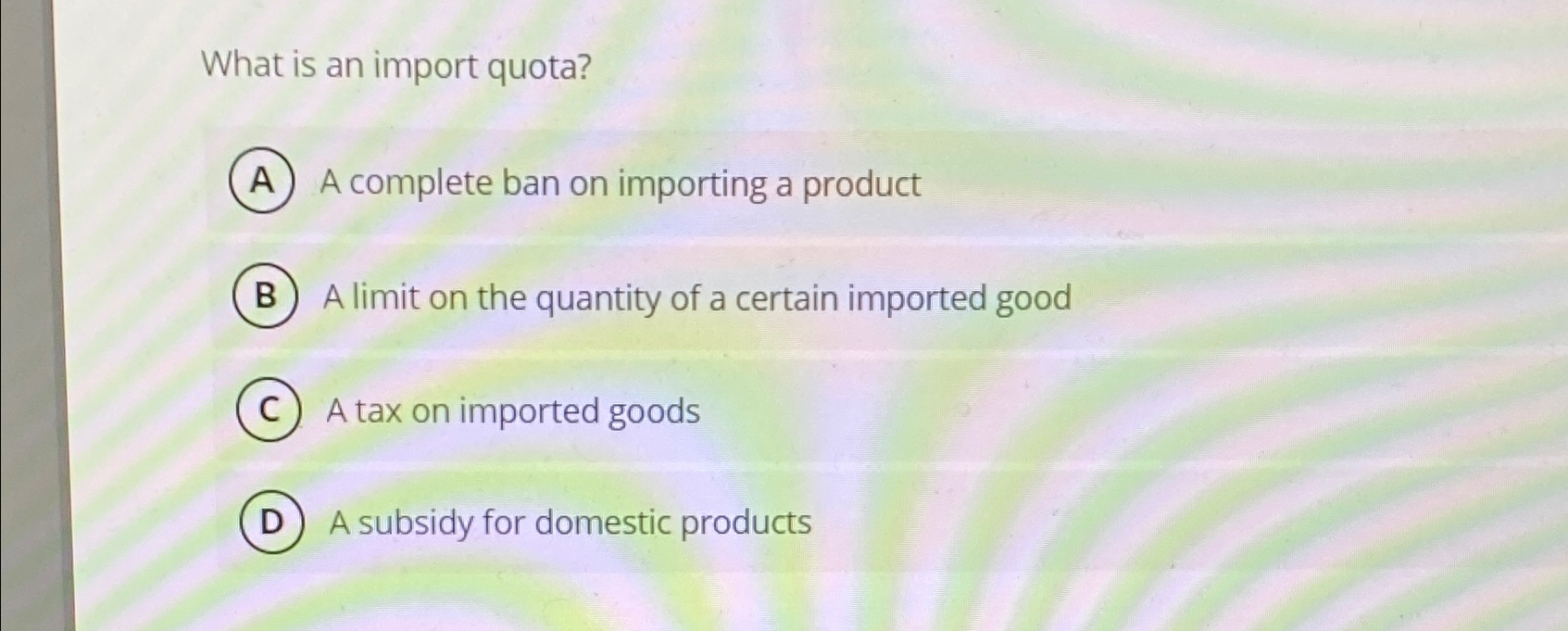The Cobalt Market After The Congo Export Ban: A Look At The Quota Proposal

Table of Contents
- The Impact of a Congo Export Ban on the Global Cobalt Market
- Supply Chain Disruptions
- Alternative Cobalt Sources
- Understanding the Proposed Cobalt Quota System
- How a Quota System Works
- Potential Benefits and Drawbacks of a Quota System
- The Future of the Cobalt Market Post-Ban (or Quota)
- Investor Sentiment and Market Predictions
- The Role of Sustainable and Ethical Cobalt Sourcing
The Impact of a Congo Export Ban on the Global Cobalt Market
A complete export ban on cobalt from the DRC would have catastrophic consequences for the global cobalt market. The ripple effects would be felt across numerous industries reliant on this crucial battery metal.
Supply Chain Disruptions
- Battery Manufacturers: A sudden reduction in cobalt supply would severely hinder battery production, leading to delays and potentially higher prices for electric vehicles (EVs) and energy storage systems.
- Electric Vehicle Production: EV manufacturers, already grappling with supply chain challenges, would face significant production bottlenecks, impacting their ability to meet growing demand and potentially delaying the transition to electric mobility.
- Other Cobalt-Dependent Industries: Various other industries, including aerospace, medical devices, and electronics, rely on cobalt, and a ban would cause widespread disruptions and price increases across the board.
- Geopolitical Implications: The DRC's dominant position in the cobalt market creates significant geopolitical risks. A ban could exacerbate existing tensions and lead to increased market instability, with potential for trade disputes and resource conflicts.
- Cobalt Price Volatility: A significant supply shock would almost certainly lead to a sharp increase in cobalt prices, creating uncertainty for businesses and consumers alike. The impact on the cobalt price would be significant and potentially long-lasting.
Alternative Cobalt Sources
While alternative sources of cobalt exist, scaling up production to compensate for a DRC ban presents significant challenges.
- Australia, Canada, and Other Countries: These countries possess cobalt resources, but expanding mining operations and refining capacity takes considerable time and investment.
- Scaling Up Production: Even with increased investment, the timeframe for significantly increasing cobalt production outside the DRC is likely measured in years, not months.
- Environmental and Ethical Concerns: Concerns about the environmental impact and ethical sourcing practices of cobalt mining in other regions must be addressed. Sustainable and responsible cobalt mining is paramount.
- Feasibility and Timelines: Diversifying cobalt sourcing is crucial for long-term market stability, but achieving this requires a coordinated global effort and substantial investment in exploration, development, and sustainable mining practices.
Understanding the Proposed Cobalt Quota System
The proposed cobalt quota system aims to manage the export of cobalt from the DRC in a more controlled manner, potentially mitigating the worst impacts of a complete ban.
How a Quota System Works
A quota system would involve the DRC government allocating export permits to companies based on pre-defined criteria.
- Process for Allocating Quotas: A transparent and well-defined process for allocating quotas is crucial to ensure fairness and avoid corruption.
- Allocation Criteria: Criteria for allocation might include historical production levels, processing capacity within the DRC, adherence to environmental standards, and commitments to local community development.
- Transparency and Accountability Measures: Mechanisms for transparency and accountability are essential to ensure that the quota system operates fairly and efficiently, minimizing the potential for manipulation and corruption. Independent monitoring would be necessary.
Potential Benefits and Drawbacks of a Quota System
A quota system offers both potential benefits and drawbacks.
-
Benefits:
- Cobalt Price Stability: A well-managed quota system could help stabilize cobalt prices by preventing extreme fluctuations in supply.
- Reduced Market Volatility: The predictability of supply under a quota system could lead to reduced market volatility and increased certainty for businesses.
- Fairer Distribution of Cobalt Resources: A quota system, if implemented fairly, could potentially lead to a more equitable distribution of cobalt resources among different countries and companies.
-
Drawbacks:
- Potential for Corruption: Without robust oversight, a quota system could be susceptible to corruption and favoritism.
- Administrative Challenges: Implementing and managing a quota system would involve significant administrative burdens and logistical complexities.
- Reduced Market Efficiency: A quota system could potentially reduce market efficiency by limiting competition and restricting the free flow of goods.
The Future of the Cobalt Market Post-Ban (or Quota)
The long-term future of the cobalt market hinges on the success of any implemented regulations and the broader adoption of sustainable practices.
Investor Sentiment and Market Predictions
Investor reaction to a ban or quota system will significantly influence market trends.
- Short-Term Impacts: A ban could initially lead to a sharp increase in cobalt prices, while a well-managed quota system might lead to more moderate price adjustments.
- Long-Term Impacts: Long-term impacts will depend on the effectiveness of the quota system, investment in alternative sources, and the development of cobalt-free battery technologies.
- Investment in Cobalt Mining and Processing: Investment decisions will be influenced by the perceived risk and stability of the cobalt market post-ban or quota implementation.
- R&D in Cobalt-Free Battery Technologies: The uncertainty created by a potential ban will likely accelerate research and development of alternative battery technologies that reduce or eliminate the reliance on cobalt.
The Role of Sustainable and Ethical Cobalt Sourcing
Sustainable and ethical cobalt sourcing is crucial for the long-term health of the cobalt market.
- Traceability and Transparency: Improved traceability and transparency in the cobalt supply chain are essential to ensure that cobalt is sourced responsibly and ethically.
- Responsible Mining Practices: Promoting responsible mining practices, including environmental protection and respect for human rights, is vital.
- Supporting Local Communities: Supporting local communities near cobalt mines through economic development initiatives and social programs is key to fostering long-term sustainability.
Conclusion:
The potential export ban from the DRC and the proposed quota system present significant challenges and opportunities for the cobalt market. Understanding the potential impact of supply chain disruptions, exploring alternative sources, and effectively managing a quota system are all crucial factors that will determine the future of the cobalt market. The emphasis on sustainable and ethical cobalt sourcing cannot be overstated. It is essential to support responsible mining practices and transparent supply chains to ensure a stable and equitable cobalt market. Stay informed about developments in the Cobalt Market After Congo Export Ban, research ethical sourcing options, and support companies committed to sustainable cobalt practices. The future of clean energy and advanced technology depends on it.

 Roma Vs Monza En Vivo Y Online
Roma Vs Monza En Vivo Y Online
 Will The Padres Dominate The Cubs 2025 Home Opener
Will The Padres Dominate The Cubs 2025 Home Opener
 Isguecue Piyasasi Dijital Veri Tabani Rehberi Ledra Pal Carsamba
Isguecue Piyasasi Dijital Veri Tabani Rehberi Ledra Pal Carsamba
 98 Year Old Wwii Veteran Destroys Tesla With Sherman Tank
98 Year Old Wwii Veteran Destroys Tesla With Sherman Tank
 Los Angeles Dodgers A Comprehensive Offseason Review
Los Angeles Dodgers A Comprehensive Offseason Review
